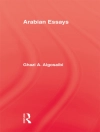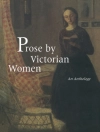Winner, 2023 Columbia University Press Distinguished Book Award
Finalist, 2023 Pauli Murray Book Prize in Black Intellectual History, African American Intellectual History Society
Shortlisted, Historical Nonfiction Legacy Award, Hurston / Wright Foundation
Ralph Ellison famously characterized ensemble jazz improvisation as “antagonistic cooperation.” Both collaborative and competitive, musicians play with and against one another to create art and community. In Antagonistic Cooperation, Robert G. O’Meally shows how this idea runs throughout twentieth-century African American culture to provide a new history of Black creativity and aesthetics.
From the collages of Romare Bearden and paintings of Jean-Michel Basquiat to the fiction of Ralph Ellison and Toni Morrison to the music of Louis Armstrong and Duke Ellington, O’Meally explores how the worlds of African American jazz, art, and literature have informed one another. He argues that these artists drew on the improvisatory nature of jazz and the techniques of collage not as a way to depict a fractured or broken sense of Blackness but rather to see the Black self as beautifully layered and complex. They developed a shared set of methods and motives driven by the belief that art must involve a sense of community. O’Meally’s readings of these artists and their work emphasize how they have not only contributed to understanding of Black history and culture but also provided hope for fulfilling the broken promises of American democracy.
İçerik tablosu
Acknowledgments
Introduction
1. This Music Demanded Action: Ellison, Armstrong, and the Imperatives of Jazz
2. We Are All a Collage: Armstrong’s Operatic Blues, Bearden’s Black Odyssey, and Morrison’s Jazz
3. The “Open Corner” of Black Community and Creativity: From Romare Bearden to Duke Ellington and Toni Morrison
4. Hare and Bear: The Racial Politics of Satchmo’s Smile
5. The White Trombone and the Unruly Black Cosmopolitan Trumpet, or How Paris Blues Came to Be Unfinished
Coda
Notes
Index
Yazar hakkında
Robert G. O’Meally is the Zora Neale Hurston Professor of English and Comparative Literature at Columbia University, where he is also founder and director of the Center for Jazz Studies. He is the author of
Lady Day: The Many Faces of Billie Holiday (1989); editor of
The Jazz Cadence of American Culture (Columbia, 1998); and coeditor of
Uptown Conversations: The New Jazz Studies (Columbia, 2004), among many other books.












